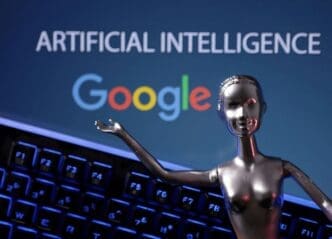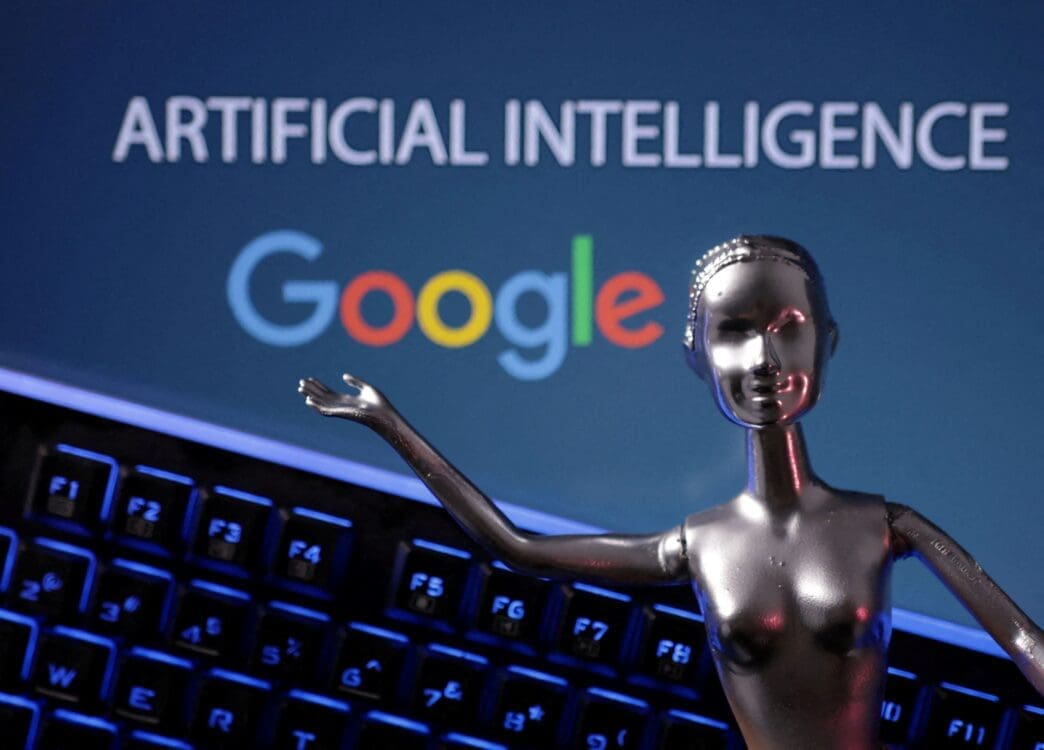SAN FRANCISCO – Amid an unprecedented wave of regulatory scrutiny, Alphabet’s Google is stepping up efforts to influence public understanding and policies regarding artificial intelligence (AI). The tech giant’s focus is firmly set on crafting educational initiatives aimed at empowering the workforce with AI skills.
Kent Walker, Alphabet’s president of global affairs, emphasized the importance of familiarity with AI, stating, “As more individuals and organizations, including governments, learn to harness AI tools, it fosters improved AI policy and creates new opportunities – it’s a virtuous cycle.”
In the race against competitors like Microsoft-backed OpenAI and Meta, Google is also wary of the significant regulatory challenges it faces in its core advertising and search businesses. The European Union has seen Google propose the sale of part of its advertising technology division to appease regulatory concerns. In the United States, the Justice Department is looking to break up Google’s Chrome browser as part of an ongoing investigation into the company’s monopoly practices.
Worldwide, governments are drafting regulations to address potential issues related to AI, such as copyright and privacy concerns. The proposed EU AI Act aims to evaluate risks and mandate disclosures from general-purpose AI systems, facing resistance from tech giants fearing massive penalties.
As AI raises fears of job displacement, Google sees a chance to shift the narrative. In September, CEO Sundar Pichai announced a $120 million fund focused on AI educational programs. High-level executives, including Walker and Ruth Porat, have been engaging globally in discussions about policy recommendations.
Walker highlighted Google’s commitment to workforce support, noting, “There’s significant potential to aid those who might be affected by AI displacement.” The company’s initiatives include expanding the Grow with Google platform, which equips individuals with skills in data analysis and IT support. As of December, one million people had earned certificates through this program, which is now adding AI-focused courses for sectors like education.
While courses are vital, Walker insisted that obtaining credentials aimed at employment is crucial for effective worker preparedness. Google’s exploration of public-private partnerships is exemplified by its “Skilled Trades and Readiness” program, collaborating with community colleges to train individuals for data center construction, with a focus on integrating AI education.
Looking ahead, Walker forecasts that only a small fraction of jobs may be fully replaced by AI. Google is actively researching AI’s workforce impact, enlisting economist David Autor to evaluate how AI might enhance training programs, similar to flight simulators.
“The history of adult retraining is not particularly glorious,” he said. “Adults don’t want to go back to class. Classroom training is not going to be the solution to a lot of retraining.”
How will Google’s focus on AI education and regulatory engagement influence your job prospects and economic landscape?
- Workforce Preparedness: Google’s initiatives aim to equip workers with essential AI skills, potentially creating new job opportunities in the tech sector while reducing fears of displacement.
- Economic Opportunities: The introduction of AI training programs could foster a more skilled labor force, enhancing employment prospects and impacting local economies positively.
- Public Policy Influence: By collaborating with governments on AI regulations, Google may shape policies that will affect how businesses operate and the legal landscape surrounding AI technology.
- Community College Partnerships: Programs designed to train individuals for emerging tech jobs can help bridge the skills gap, improving access to well-paying jobs for diverse communities.
- Job Market Evolution: The shift to integrating AI in most jobs may lead to changes in job descriptions and skill requirements, affecting daily employment strategies for individuals across industries.
Source: Reuters.








